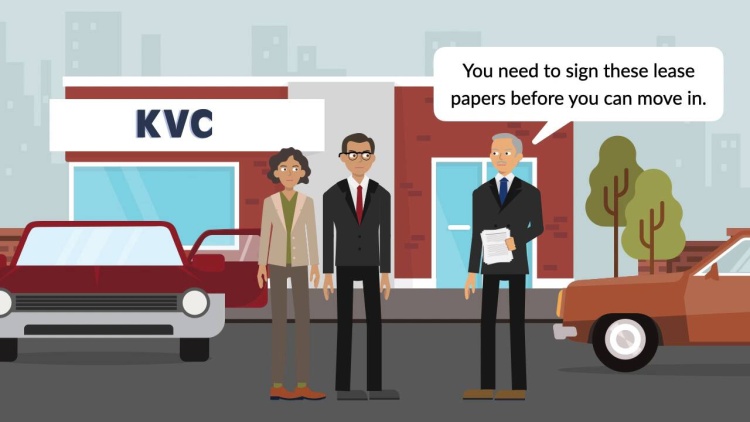Park 100 Investors, Inc. v. Kartes
Indiana Court of Appeals
650 N.E.2d 347 (1995)
- Written by Sarah Larkin, JD
Facts
The Kartes (defendants) were part owners of Kartes Video Communications, Inc. (KVC). KVC entered into an agreement to lease space at Park 100, an industrial complex. The lease negotiations were handled by Scannell, a Park 100 representative, and Kaplan, a KVC senior vice president. A personal guaranty of the lease was never discussed during negotiations. KVC entered into the lease and planned to move in July 28-29. On July 27, Scannell went to KVC offices at 5:00 p.m. and found the Kartes getting into their car. Scannell told them he had “lease papers” that they needed to sign. Kartes stated that they were leaving for their daughter’s wedding, but Scannell insisted that KVC could not move in until the papers were signed. Scannell presented a document titled “Lease Agreement” to the Kartes for them to sign. Mr. Kartes called Kaplan to confirm that KVC’s lawyer had approved the papers. The Kartes signed the papers. Scannell never informed the Kartes that they were signing a personal guaranty of lease. Years later, when Park 100 sent the Kartes a “Tenant Agreement,” the Kartes discovered the personal guaranty. The Kartes objected to the personal guaranty and refused to affirm that portion of the lease. The Kartes later sold their interest in KVC to another party. That party missed lease payments. Park 100 filed suit against the Kartes based upon the personal guaranty. The trial court held in favor of the Kartes. Park 100 appealed to the Indiana Court of Appeals.
Rule of Law
Issue
Holding and Reasoning (Barteau, J.)
What to do next…
Here's why 910,000 law students have relied on our case briefs:
- Written by law professors and practitioners, not other law students. 47,100 briefs, keyed to 997 casebooks. Top-notch customer support.
- The right amount of information, includes the facts, issues, rule of law, holding and reasoning, and any concurrences and dissents.
- Access in your classes, works on your mobile and tablet. Massive library of related video lessons and high quality multiple-choice questions.
- Easy to use, uniform format for every case brief. Written in plain English, not in legalese. Our briefs summarize and simplify; they don’t just repeat the court’s language.





